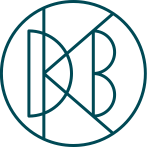Resistance
A stone wall that struck me as I walked from one place to another the other day.
In the latest episode of Should We, Lisa and I dig into how we’re each relating to our finances now. Because my relationship to budgeting has been a reluctant one, a lot of the work has been to look at the reluctance, rather than looking straight at the money. Around the nine-minute mark in the episode, I share:
In general in my life, I’ve been working with resistance more. So, whenever I feel resistant to something, there’s probably something interesting underneath. There’s probably a big revelation waiting for me if I can just power through the resistance. And “power through” is an aggressive way to say it. Sometimes it’s “hold the resistance,” “be with the resistance,” “soften to the resistance”—like, it’s not always about blasting through and destroying the resistance.
This morning, I started thinking about where that clarity came from. It’s certainly not a convenient clarity, but it’s an important one. Mainly, I think it came from a lot of listening to a lot of Tara Brach and her gentle refrain: The boundary to what we accept is the boundary to our freedom. (You can hear here talk about this around 5:30 in this episode, along with many others.) I found this a thrilling call to action—down with resistance! down with all boundaries! up with freedom—and that’s where the need for gentleness comes in. I found that in Tara Brach’s book True Refuge, where she writes: “Being present with difficulty is not an endurance test. It is not yet another domain where you need to prove that you can succeed. Sometimes you simply need to prepare the ground and find ways to feel more safe and stable.”
I can go back in time and find passages I highlighted in True Refuge back in March, and notes I sent to Lisa around the same time, and recognize that it takes a lot of kindly repetition for a new mindset to feel normal. I know that my perspective has shifted and softened over time, but I can’t always remember how. It’s helpful to be able to retrace my steps and be an archaeologist of my own mind: what struck me when? What stuck? And how can I hold onto it without grasping?

